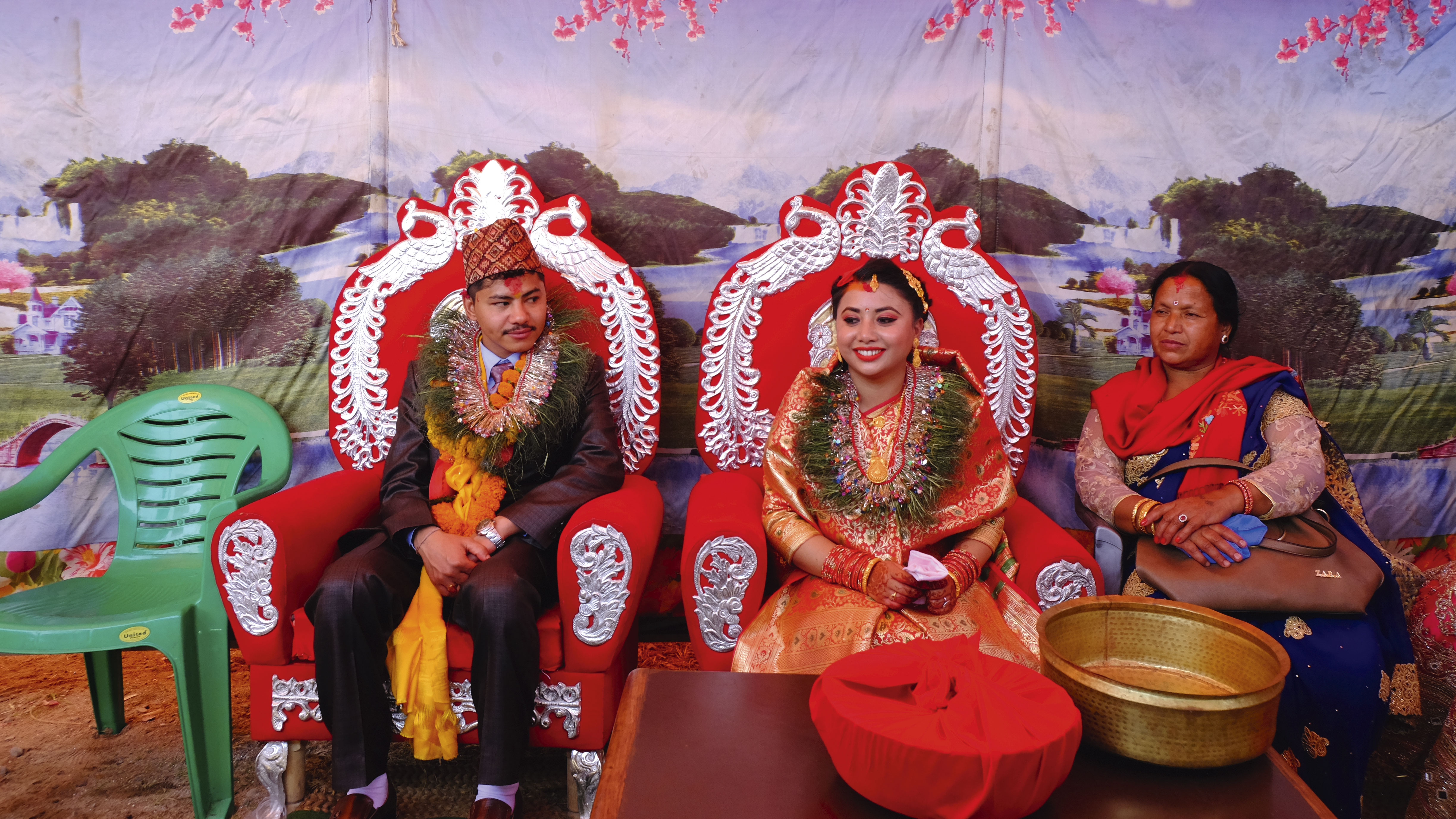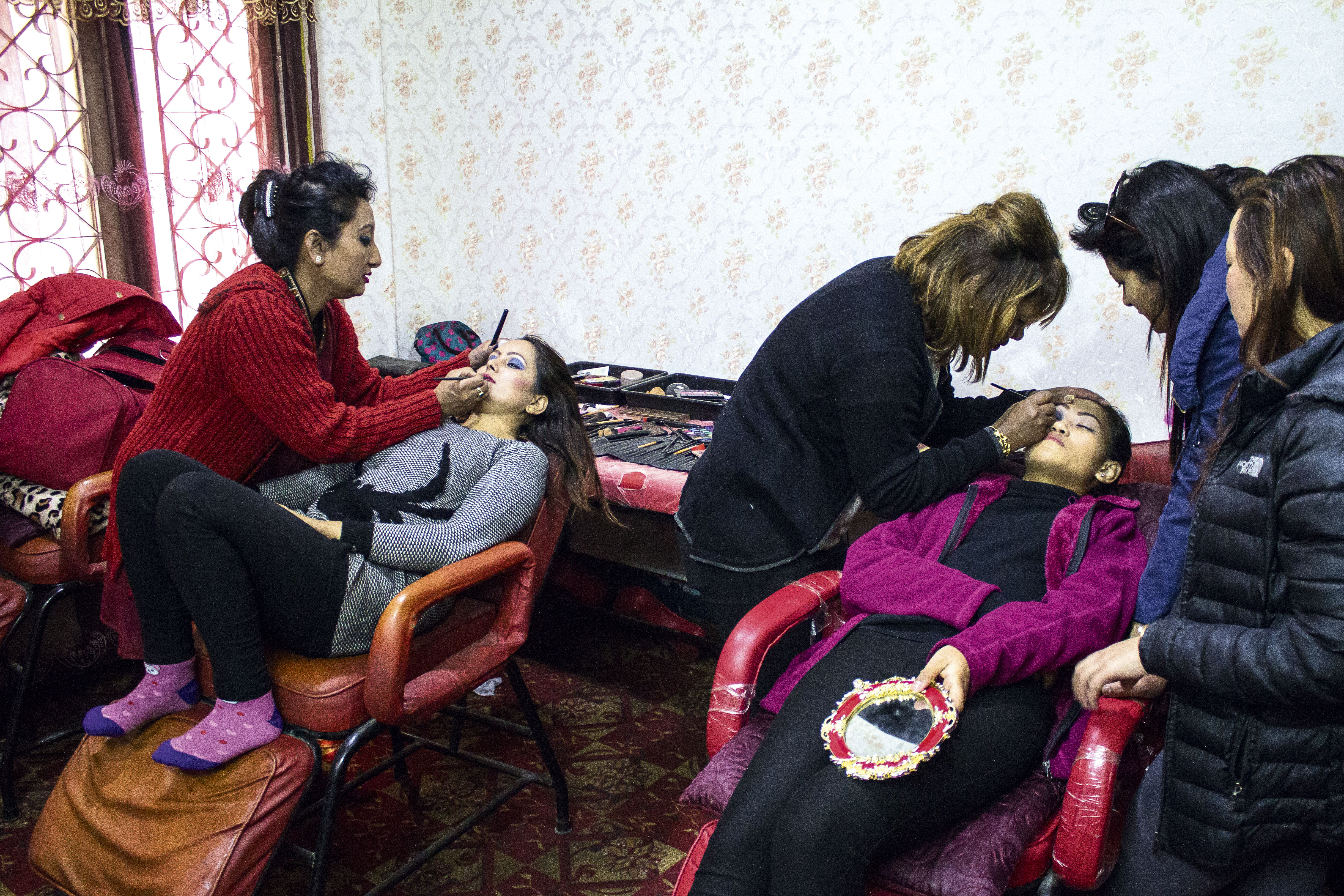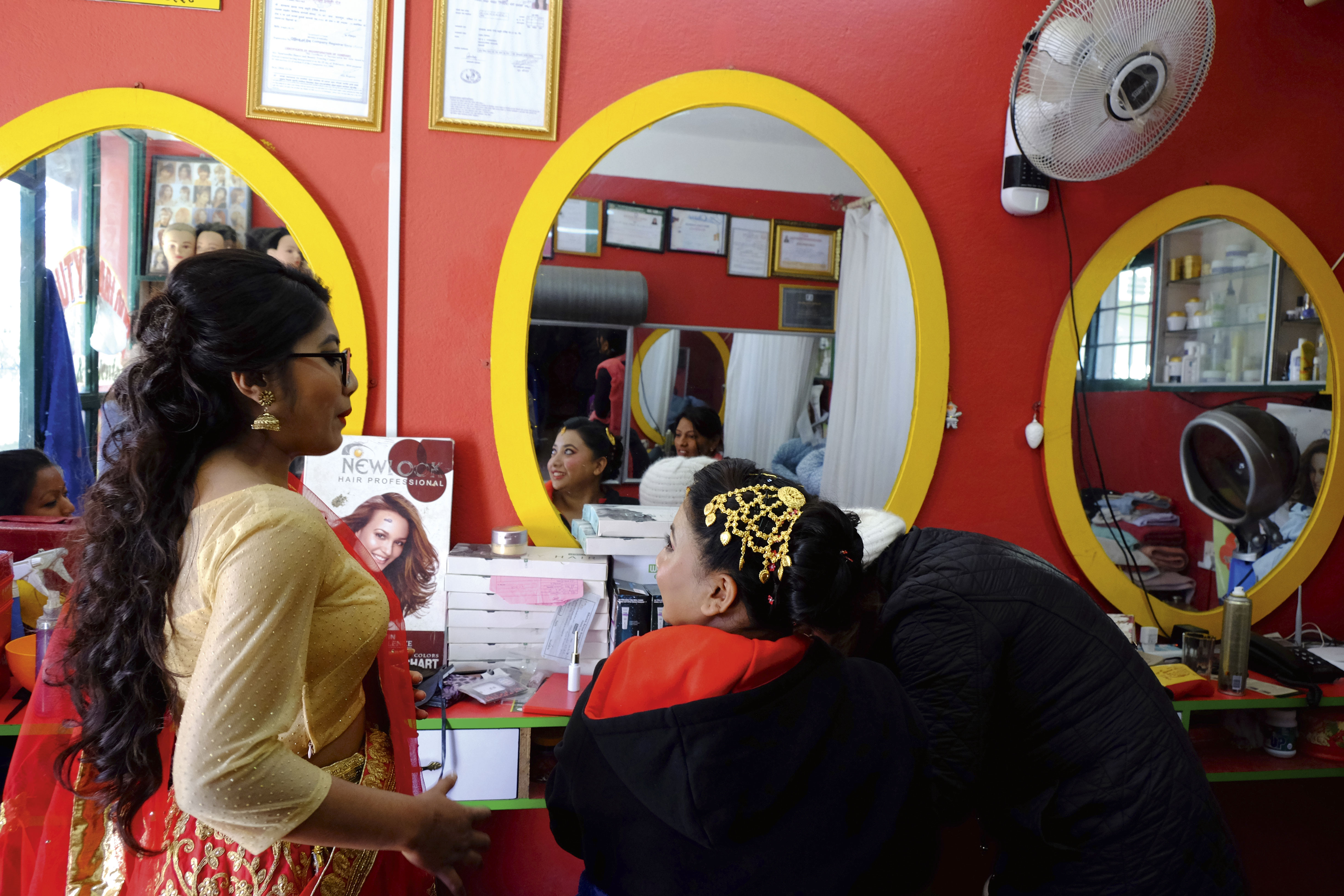How The Newlywed Project is educating Nepal’s virgin brides
With no access to sex education, wedding nights for Nepalese women – and men – are often filled with fear. Corinne Redfern reports on The Newlywed Project, a beauty salon initiative offering sexual enlightenment

Celebrity news, beauty, fashion advice, and fascinating features, delivered straight to your inbox!
You are now subscribed
Your newsletter sign-up was successful
With no access to sex education, wedding nights for Nepalese women – and men – are often filled with fear. Corinne Redfern reports on The Newlywed Project, a beauty salon initiative offering sexual enlightenment
‘I didn’t know what sex was until I did it,’ Sajana Maharjan, 24, whispers modestly. ‘Nobody had told me how it worked.’ She was so scared on her wedding night, she made her older sister share the double bed in her new house – while her new spouse slept in another room. ‘We had sex a few days later, but it was a shock. I hadn’t realised it worked like that at all.’ Sajana’s husband, Bishowraj Lawot, 29, agrees that they were unprepared. Although, talking with an almost-empty plastic cup of home-brewed rice beer in his hand, he’s less red-faced when it comes to discussing it. ‘I wasn’t sure if we were doing it right,’ he laughs. ‘I was so nervous, I felt like I was falling off a cliff. But there was nobody I could ask to check, so we just had to work it out on our own.’ Neither had heard of The Newlywed Project, and they're not alone.
In Nepal, sex is a secret. Sure, it takes place – sky-high birth rates are testimony to that. But with female literacy estimated at 46 per cent, and minimal internet access, discussions surrounding what happens behind bedroom doors aren’t whispered, they’re non-existent. This would explain why more than 50 per cent of all pregnancies in the country are unwanted* and data suggests over 300,000 abortions take place every year. Local health experts believe this is down to a total lack of knowledge about how reproduction works.
‘I genuinely believed I could get pregnant from kissing until a couple of years ago,’ says student Smita Pokharel, 23. ‘There’s so much confusion surrounding sex. This is probably the first time I’ve ever talked about it properly.’ And her discomfort is common. When I ask Hasina – an engaged (and intimidatingly outgoing) 19-year-old from rural Kapilvastu – whether she’d talked about her impending wedding night with friends, she looks aghast, before fleeing the room with her hands over her face. Even in Kathmandu – a city of 1 million people, where magazines openly promote female empowerment – it’s a similar story. Weddings may be three-day-long affairs accompanied by designer dresses and limitless alcohol, but an hour before the bride departs for her husband’s house, Smita says it’s routine to see her crying and begging her parents to stay. ‘After all, if you don’t know what sex is, how can you consent?’ she adds.

Enter Junu Chakradhar, a 34-year-old from Kathmandu who’s on a mission to bring sexual knowledge to a generation of young women. Junu is one of 47 beauticians who have signed up to ‘The Newlywed Project’ − a culturally controversial but forward-thinking enterprise aiming to teach millennial women how to have safe sex on their wedding night, and actually enjoy it. With weekly drop-in classes for soon-to-be-wed couples, an app that provides guidance on contraception and partner ‘vendors’ who dish out face-to-face advice while selling ceremony-based services, The Newlywed Project is transformative – and taking off. ‘There’s too much shame about sex in Nepal,’ says Junu, clutching a Kylie Lip Kit as she talks. ‘So many young brides come in here crying so much I can’t even apply mascara. They’re so scared about what will happen after their ceremony ends and they go home with their husband. That doesn’t seem right.’
Guiding the women through decisions such as what colour underwear to buy (‘Red. Always red, to match their sari’) and what beauty treatments might make them feel more confident once they have unravelled themselves from seven metres of scarlet silk (‘full body waxing, followed by a scented scrub’), Junu advises them on what contraception to use (‘condoms, or the injection if you don’t want your mother-in-law to find out’), and which positions are the easiest for your first time (‘missionary’). ‘Most of these women have never discussed sex before. Their only knowledge comes from TV, and Nepali TV tends to show a couple holding hands before turning the lights off,’ she says. ‘But when you’re a make-up artist, you’re already up in your client’s face, invading their personal space. That closeness creates a level of trust you don’t find elsewhere.’
Another woman who has benefited from The Newlywed Project is Shrijana Maharjan, 26. She admits that she used to get her sex tips from her 18-year-old sister, Sarita ‘because she’s the only one who’s studied biology up until year ten’. Her previous tips, it transpires, involved studying a textbook diagram of the male anatomy. But thankfully help came from beautician Gopi Maya Thulung, 36, ahead of her wedding last month. On the morning of her big day, Gopi applied red eyeshadow and pinned Srijana’s hair up into a twist of complicated curls, then imparted some last-minute advice: ‘Don’t be too shy to tell him what you like and don’t like,’ she said. ‘And you might think condoms seem unnatural, but you don’t want to be pregnant in a week’s time.’
Celebrity news, beauty, fashion advice, and fascinating features, delivered straight to your inbox!
For Manjeena Shrestha, 26, The Newlywed Project wedding-night service was hugely beneficial. She eloped with her then-boyfriend of three years, Rikesh Rajthala, last October. ‘Our parents weren’t happy with our relationship, so we ran away to do things on our own terms,’ she explains. ‘I borrowed a red sari from a friend, and then we went to the nearby temple to exchange garlands and rings.’ Ceremony over, the couple rented a studio in the city and found themselves staring at the bed in a state of mild panic. ‘Before, we’d been scared to even hold hands in public,’ recalls Manjeena. ‘So when we got to the room, we just stood there and cried together. There were a lot of mixed emotions about what we were going to do next.’ But their fears were tempered by the fact that – unlike many of their friends – they’d already talked about sex. ‘We’d been secretly attending the drop-in Newlywed Project sessions for months, after I heard about it at a youth club, so we’d already agreed we were going to use condoms and knew how to approach things slowly.

I used to think sex was something I should feel embarrassed about, but when it came down to it, I was actually quite relaxed.’ Rikesh agrees that Newlywed Project classes, which saw them both write down their sex-based fears on paper before reading them to each other, potentially saved their wedding night. ‘Before, I would talk about sex with some of my male friends,’ he smiles. ‘I think it’s a bit easier for guys to discuss it than it is for girls. But I never imagined that being married would mean we’d be able to have sex whenever we wanted. I always loved Manjeena, but we’re much more open with each other now.’
Behind the nerves and knickers tips there is a deep-rooted message that centres on female education and empowerment. And, as Smita opens up about a friend who killed herself after discovering she was pregnant within 12 months of her marriage, the need for such an initiative is obvious. The brainchild of Marie Stopes Nepal, which offers help to women struggling to cope with unplanned pregnancies, The Newlywed Project gives women power over their bodies and futures again. Yet it’s already in jeopardy. President Trump’s controversial ‘Global Gag’ ruling threatens to cut US funding to International Non-Governmental Organisations that ‘promote’ abortions.
‘The Newlywed Project has the capacity to make a very real difference for many couples in Kathmandu and beyond,’ says Sophie Hodder, the charity’s country director. ‘As soon as we start talking about sex, we start erasing some of the shame that surrounds it – and that kind of education doesn’t just reduce the number of unwanted pregnancies in Nepal, it saves lives.’
It also transforms relationships. At 1am on the night of her wedding, Srijana sits on her marital bed with her new husband and grins. She’s still nervous, but as a result of meeting with her wedding-night planner, she feels in control of what happens next. After all, she’s already considered every second of it – and this time, there isn’t a biology textbook in sight.
The leading destination for fashion, beauty, shopping and finger-on-the-pulse views on the latest issues. Marie Claire's travel content helps you delight in discovering new destinations around the globe, offering a unique – and sometimes unchartered – travel experience. From new hotel openings to the destinations tipped to take over our travel calendars, this iconic name has it covered.